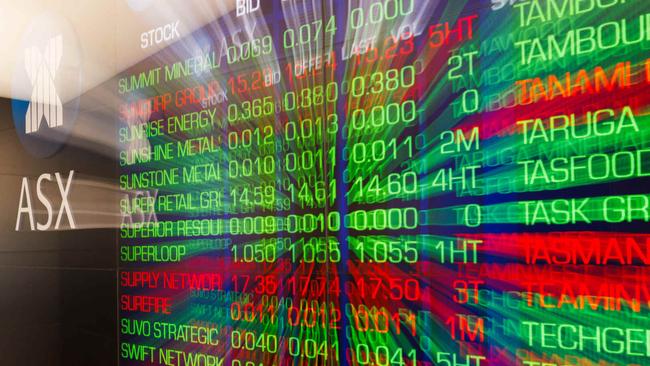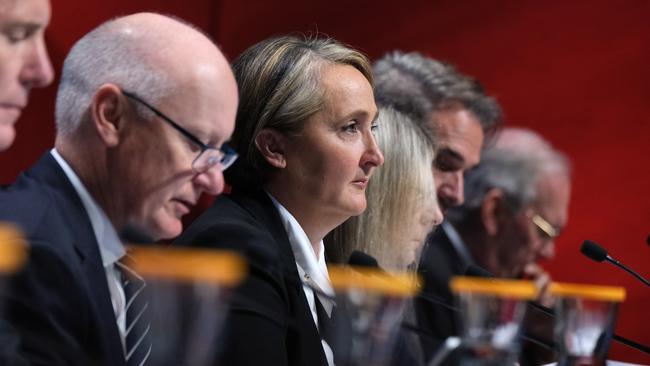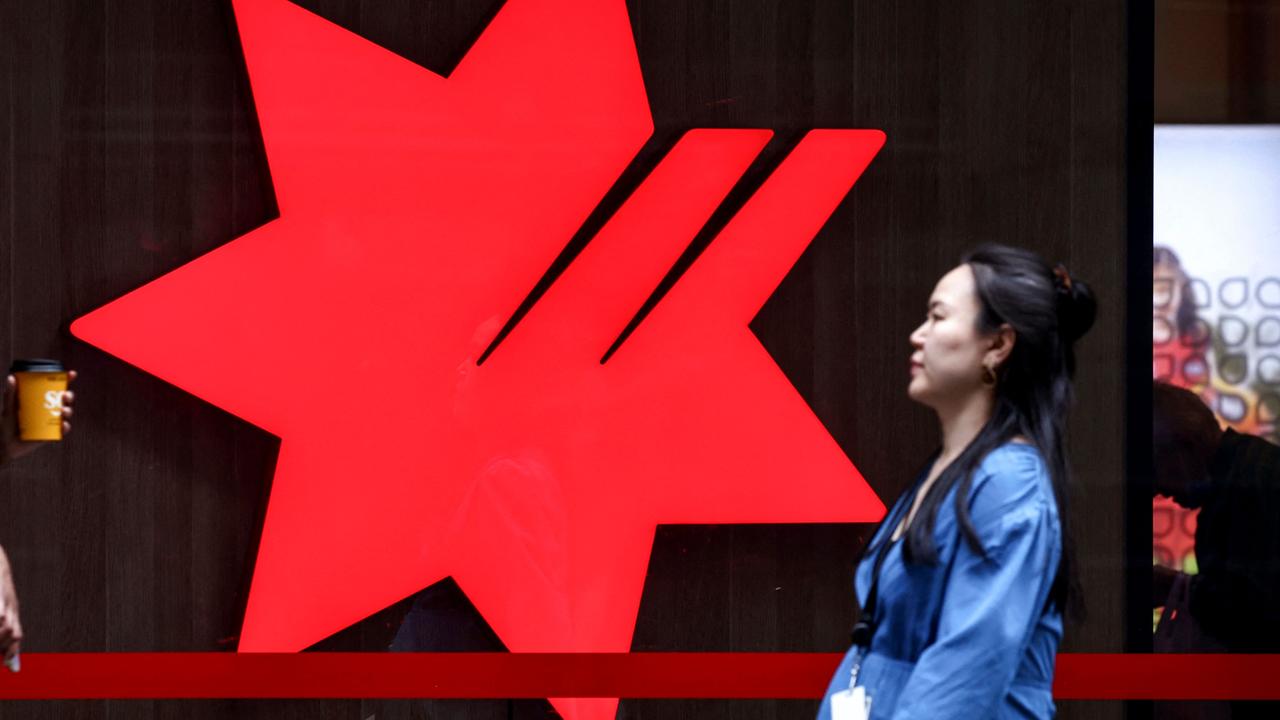Future Fund treads too softly keeping corporates in line
Not only is the $290bn fund reluctant to put real heat on listed companies, it is painfully late to the proxy party.

Business
Don't miss out on the headlines from Business. Followed categories will be added to My News.
The real story on the $290bn Future Fund is not what it voted against, rather what it supported.
Time and time again, one of the nation’s biggest stockmarket investors backed sub-par performance and went missing on governance when it really counted.
Its latest annual proxy report shows the Raphael Arndt-run Future Fund got right behind ASX’s board, including the election of chairman Damian Roche at last year’s annual meeting. That came as the exchange operator was still reeling from the technology disasters that erupted the year before. Roche has since signalled his intention to retire at this year’s annual meeting.
The Future Fund also went for the short-term cash on offer over longer-term value by last November backing the planned $20bn buyout Origin Energy – a deal that’s since been shelved.
The Brookfield-backed takeover valued Origin at $9.43 a share. (It was really $9.04 a share given part of the offer was to be funded by Origin’s own cash reserves). Industry fund AustralianSuper stuck its neck out saying the deal was giving too much value away offshore and used its clout to block the buyout. Origin last traded at around $10.00 a share.
From market laggards Bapcor, Domino’s Pizza, Lendlease, Nine Entertainment and Perpetual (including a proposed bonus package for the Perpetual CEO), the Future Fund waived through the votes.
It backed Endeavour and more than eight in 10 remuneration reports of the top ASX companies, according to its latest proxy voting summary.
While the Future Fund made the easy call to vote against the Qantas remuneration report last year, it gave the airline a clean bill of health the year before as its earnings were roaring back.
The release of the latest proxy statement is also a reminder how painfully slow the Future Fund is around disclosures.
The votes are dribbled out on a financial year basis, but given most ASX meetings are clustered around late September and through October, the disclosures are a year late.
Real-time disclosures are a potent way to use investment muscle and send a message.

Australia’s industry funds often talk a big game around ESG, but they are also laggards on voting disclosures. The $341bn AusSuper releases proxy details on a quarterly basis. Hostplus drops its voting record in six-month batches; Cbus’ voting is known long after the fact.
Take a look around the world and we know where many mega funds stand on Australian companies in real time.
For example, the $US503bn ($737bn) Californian-based CalPERS scheme intends to back all the proposals looming at next week’s AGL annual meeting. We’ve known this for at least two weeks. CalPERs has made it known it voted against the re-election of one director at the recent Collins Food meeting.
The $US207bn ($303bn) New York State Common Retirement Fund is another that publishes voting intentions in advance. The New York fund plans to back all the AGL proposals and it supported this week’s buyout vote of APM Human Services.
Maybe the Future Fund can take a leaf from the world’s biggest sovereign wealth fund, Norway’s $2.5 trillion Norges Bank.
The giant fund has investments in nearly 9000 listed companies across dozens of countries and publishes its proxy voting intentions five days before an annual meeting. Importantly, Norges also outlines the reasons why it plans to vote against a specific agenda item.
Norges has more than $25bn under management in Australia. While it doesn’t own AGL shares, it too backed this week’s APM vote. Australians will know how the Future Fund voted on APM some time about 12 months from now. However, given its past form on Origin, you can bank on them taking the cash in the $1.3bn buyout.
johnstone@theaustralian.com.au
More Coverage
Originally published as Future Fund treads too softly keeping corporates in line




